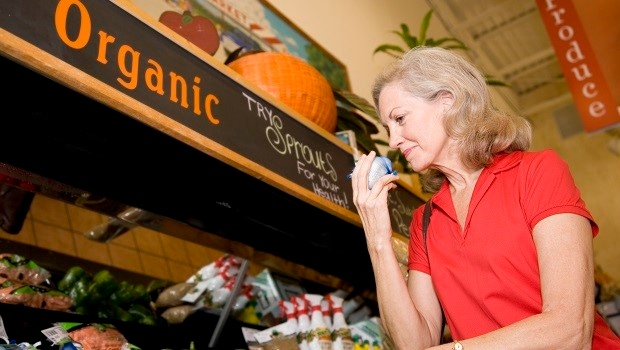New research from Mintel suggests American consumers may be confused about the benefits of organic products, and many think organic labeling is nothing more than an excuse to charge more for the product.
June 25, 2015

New research from Mintel suggests American consumers may be confused about the benefits of organic products, and many think organic labeling is nothing more than an excuse to charge more for the product.
The report found 51 percent of Americans agree that labeling something as organic is an excuse to charge more. In fact, only 29 percent of consumers recognize that organic products are highly regulated.
While sales of organic products are on the rise, actual consumer penetration has plateaued.
“Our research finds half of consumers say labeling something as organic is an excuse to charge more. Considering the typically higher cost of organic foods and beverages, consumers are increasingly hard pressed to justify the added expense," said Billy Roberts, senior food and drink nalyst at Mintel. “As such, sales have hit something of a plateau, where they likely will remain until consumers have a clear reason to turn to organics."
The report indicated Generation X (51 percent) and the Swing generation (57 percent) in particular regard an organic label as a premium price tag.
What’s more, the distrust many Americans have of organic food and drinks extends beyond issues with the price. Only 39 percent of Gen X trust that organic-labeled products are actually organic. This number decreases to 35 percent of Swing generation consumers. Only four in 10 Millennials (40 percent), the demographic that most supports organics, recognize that organic products are highly regulated. More than one-third of all consumers (38 percent) regard organic as a marketing term with no real value or definition.
The biggest selling point for organic products? Seventy-two percent of Americans think organic products are healthier. In fact, both women and men purchase organic products for health and nutrition reasons (73 percent and 71 percent, respectively).
Those numbers fall to 31 percent of women and 29 percent of men who purchase organics because they are less processed than their non-organic counterparts, and 20 percent of women and 16 percent of men purchase organics because organic companies treat animals more ethically.
According to the report, female shoppers tend to choose products that avoid certain characteristics: 43 percent purchase them because they do not contain unnecessary ingredients or chemicals, and the same percentage do so to avoid food made with pesticides.
The environment is a hefty consideration as well; 69 percent of Americans factor environmental or ethical reasons in their purchase decision.
Room for Growth
The data suggests organic food and beverages have room to grow, as only a third of consumers (33 percent) indicate they purchased a food or beverage labeled as organic within the last three months. However, organics consumption is greatest among the younger generations with nearly half of Millennials (49 percent) choosing organic for at least half of their food/beverage purchases, a drastic comparison to the 43 percent of Gen X, 51 percent of Baby Boomers, and 58 percent of the Swing generation who consume no organic products.
Additionally, more than half of Millennials (51 percent) indicate they feel better about themselves when they purchase organic products, a factor that declines notably among older generations, to less than a quarter of Baby Boomers (24 percent).
While nearly three in five Millennials (42 percent) indicate they purchased an organic food or drink in the last three months, purchase rates drop dramatically among Baby Boomers and older consumers. Millennials are significantly more likely to purchase high volumes of organics: 20 percent indicate that organics comprise at least three quarters of their total food/beverage purchase. Baby Boomers and the Swing generation, however, are much less likely to purchase high volumes of organics. In fact, organics comprise significantly lower portions of those consumers’ food and beverage purchases (just 6 percent and 2 percent respectively).
There are a few reasons as to why consumers may be confused when shopping for organics. Roberts cited the large selection of organic products, as well as confusion over “natural" versus “organic," and limited regulation of the term “natural" as some of the reasons.
He suggested companies “counter this skepticism by striving for transparency and proactively making green and sustainable practices part of their business model. Consumers likely focus on the short-term impact of purchasing a product, but brands could help shift consumer perception to be more about a longer-term and holistic approach to a healthy lifestyle."
Despite the confusion over organic labeling, “healthy" is in high demand, and is impacting retailers across the country. The free Report, “Defining the Healthy Retail Revolution," dives into the many aspects of the healthy retail “revolution," including consumers’ desires for certain types of labeling, retailer initiatives around programming and at-shelf merchandising, and the rising interest in non-GMO.
About the Author(s)
You May Also Like






.png?width=800&auto=webp&quality=80&disable=upscale)